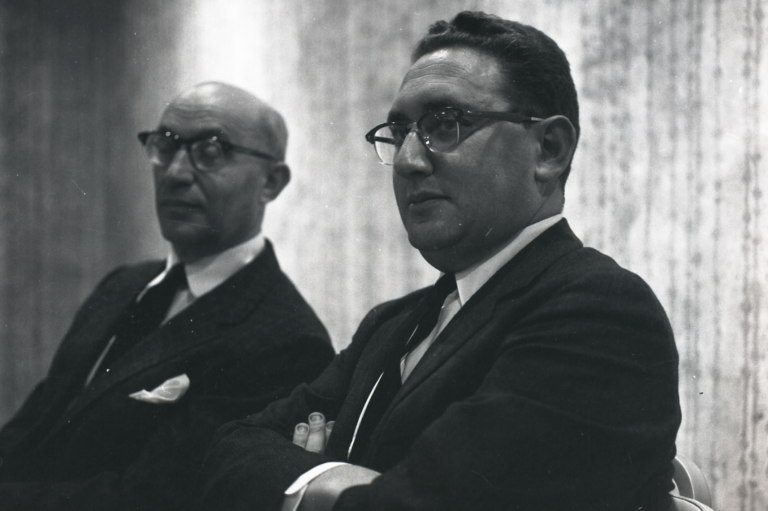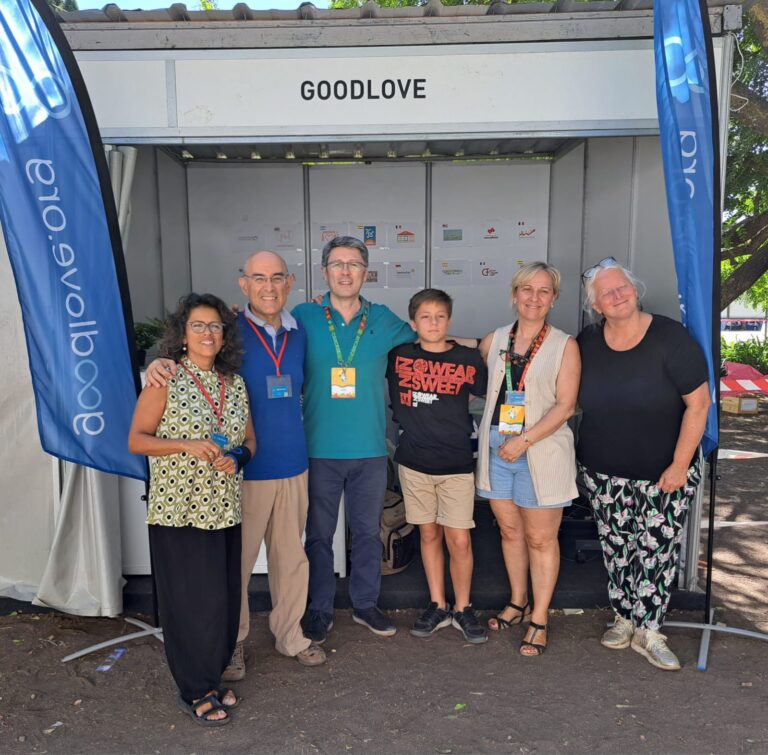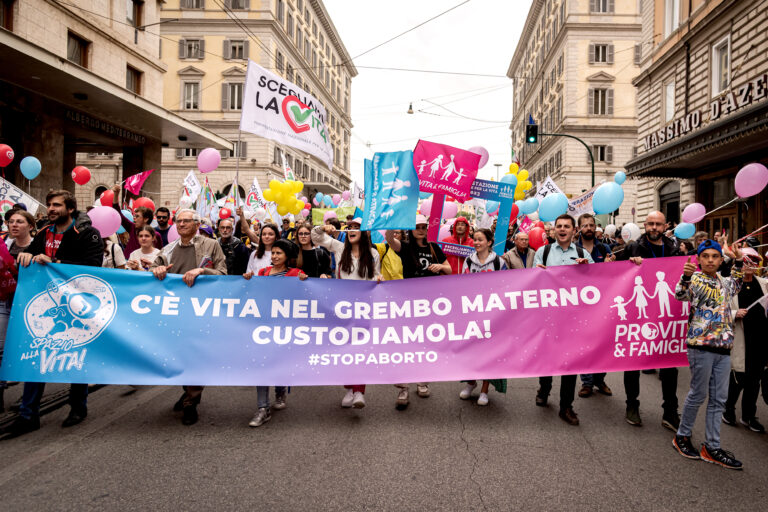The recent ruling by the Colombian Constitutional Court, which effectively legalized abortion in that country, signaled to us at PRI that it was time to expand our efforts in Latin America. Until that ruling, solidly Catholic Latin America had been nearly abortion-free. The only exceptions were Cuba and Puerto Rico, and in neither case did it reflect the will of the people. Fidel Castro imposed abortion on his dirt-poor “socialist paradise” (whose low birthrate and high abortion rate speak to the abysmal conditions there) while abortion was forced on pro-life Puerto Ricans by the judicial tyranny of Roe v. Wade.
Intrusion from the West
We were convinced that Latinos, if left to themselves, would hold fast to their pro-life, pro-family traditions. The problem was, they weren’t being left to themselves. The UN Population Fund, the World Bank, the European Union and, yes, our own US Agency for International Development were putting tremendous pressure on the governments of Latin countries to legalize abortion and adopt mandatory population control programs. One example of this is a recent ad that appeared in a Nicaraguan newspaper advocating the legalization of abortion: It was signed (and presumably paid for) by an arm of the World Bank. At the same time, these same organizations are cleverly funding local feminist, environmentalist, and population control groups in each country to push the same agenda. These radical groups constitute a kind of fifth column, working to undermine local laws guarding the sanctity of life.
What could PRI do to stop this invasion of the abortionists? We already had, thanks to the generosity of our donors, a “command center” in Lima, Peru, headed by the redoubtable Carlos Polo. And we also had, at our disposal, a raft of pro-life laws, for whose passage we had testified. These included the Mexico City policy, the Kemp-Kasten Amendment, and the Tiahrt Amendment, that collectively forbade any U.S. funding from going for abortion, ruled out coercion, bribes, and quotas in family planning programs, and mandated informed consent. We had had much success in applying these laws in the past in Peru, China. and other countries. Significant funding cuts to offending groups had resulted. Now it was time to apply them on a continent-wide basis.
We were convinced that if we could identify the many groups in Latin America that were violating these U.S. laws and bring this evidence to the attention of congress and the Administration, then we could force these pigs out of the federal trough. Deprived of their flow of foreign cash, many of these local abortion advocacy groups would dramatically shrink in size, if not collapse entirely. Local pro-life efforts within these pro-life countries would then prevail. The unborn would continue to be protected. We decided to call our plan, Project Stop Abortion.
PRI’s Boots on the Ground
In order to carry our this plan we had to have “boots on the ground” in each of the Latin American countries, well-educated professionals who would investigate and report on whether or not foreign-funded groups were violating U.S. or local laws. After an extensive recruiting effort, we hired PRI country directors for Brazil, El Salvador, Bolivia, Uruguay, Argentina, Ecuador, Colombia, Honduras, Nicaragua, Costa Rica, and Peru. We can’t reveal their names because it would compromise the investigations they are now carrying out, but we can tell you that they include doctors, lawyers, former government officials, and other people with superb qualifications. They all shared one characteristic in common: their passionate desire to stop abortion from being imported from the United States into their countries.
The next step involved training. The week of April 9 we brought the PRI country directors to Washington, D.C., for an intensive five-day training course. The goal of the course was to equip these committed pro-lifers with the knowledge and skills they needed to protect the unborn in their countries from foreign assaults.
We began by telling them the history, tactics, and goals of the international abortion/population control movement, going quickly through my (Mosher) forthcoming book called Population Control: Real Costs and Illusory Benefits. Then we talked about the various groups, including the International Planned Parenthood Federation, that receive US “population stabilization” funds. Next we covered the U.S. laws — Mexico City, Tiahrt, and Kemp-Kasten — that apply to such funds, and how they have been successfully applied in the past to cut funding to abortion/population control groups that violate them.
Moving on
From there we moved to the mechanics of conducting an investigation, including the kinds of testimony and documentary evidence that is required to build a case. Here one of our long-time volunteers, who prefers to remain anonymous, gave two powerful presentations on interviewing techniques, an area in which he has decades of experience. James Kaiser, former staff counsel for the Subcommittee for Criminal justice, Drug Policy and Human Resources of the Committee on Government Reform of the U.S. House of Representatives also joined us. Mr. Kaiser, who had recently conducted an investigation of a possible Tiahrt violation in Guatemala, told the country directors that their work was vital: “If you want to enforce these laws, we need non-profit organizations [like PRI] to do the groundwork, to do the oversight that our government is not going to do.”
Later in the week we spent a day on Capitol Hill, where the PRI country directors were enthusiastically welcomed by Congressman Christopher Smith of New Jersey, the leading pro-lifer on the Hill. Mr. Smith spoke about the importance of the work that they were about to undertake, promised his wholehearted support, and took everyone on a walking tour of the House of Representatives. Among the others we met with that day was Michael Schwartz, Chief of Staff for Senator Flint Coburn, who told the directors of their central role in protecting the Culture of Life in Latin America. “You can contribute a great deal,” Schwartz said, “by providing the information, and by helping the poor of your country understand that they have rights that must be respected, even by the United States.”
Taking the Fight Home
The directors spent their final day drawing up, under the direction of Carlos Polo, a detailed plan for their country. Then, filled with energy and enthusiasm, they headed back to their various countries, equipped with the knowledge and skills needed to make a difference in the name of life, Carlos considers the training session to have been a huge success, to judge from the comments of the participants. “I have been to many conferences.” one country director with many years of pro-life experience remarked to us, “but this is the first one I have been to that gives me hope that we can stop foreigners from forcing abortion on my country. I now know exactly what to do.”
We have taken the battle for life in Latin America to a new level, with Project Stop Abortion, and expect to have much to report to you in the months to come. Please pray for the success of our ambitious effort, and support it with your contributions as you are able.










